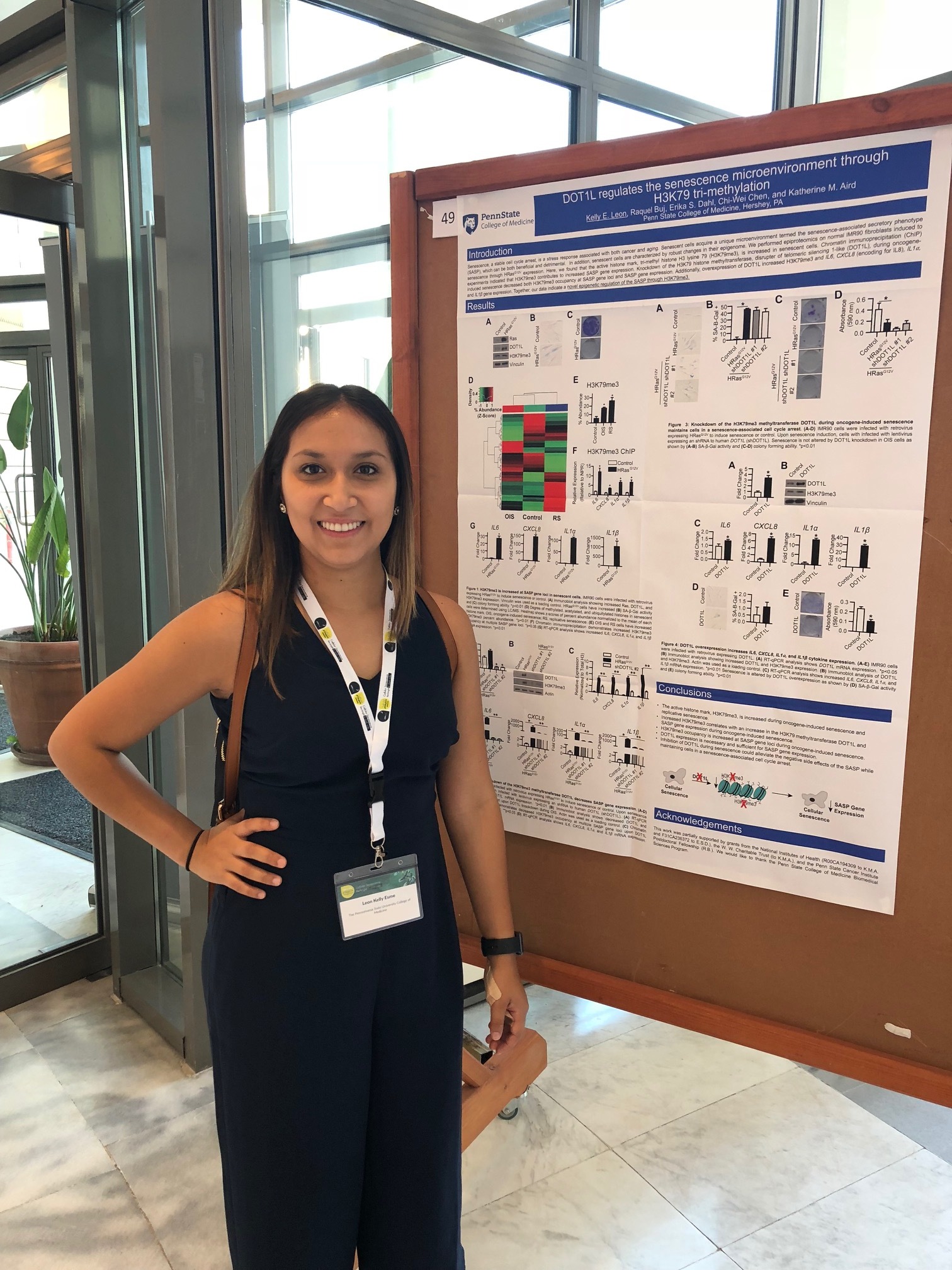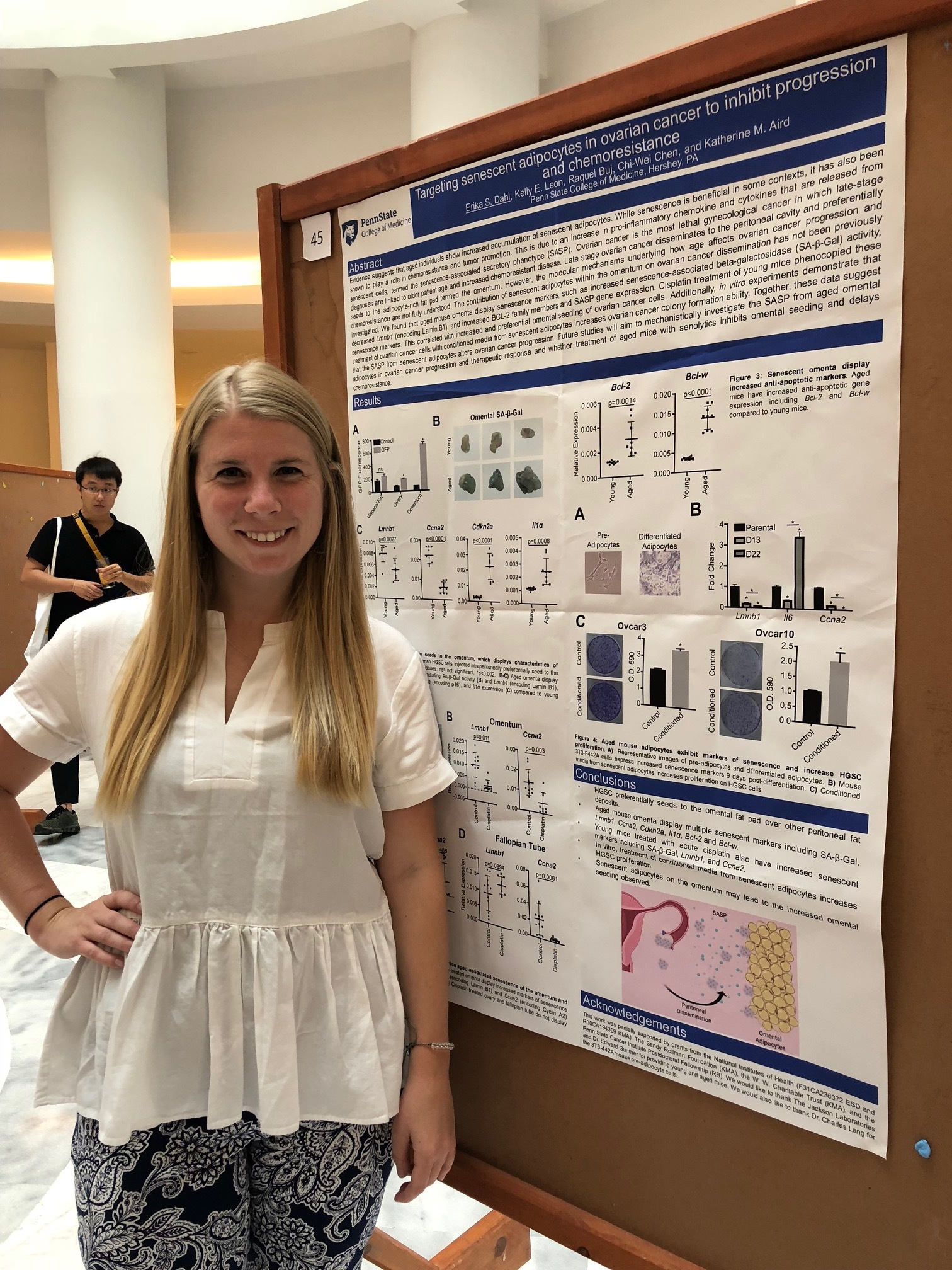Erika submitted her 1st first author paper! Read the preprint here.
She found IDH1 by looking at metabolites in fallopian tube cells compared to high grade serous ovarian cancer cells. Interestingly, while glycolytic metabolites were not consistently altered, TCA cycle metabolites were universally high in the cancer cells. This suggests that targeting the TCA cycle is a therapeutic strategy for high grade serous ovarian cancer. When she looked at TCA cycle enzyme expression, IDH1 stood out because it was high and associated with worse progression-free survival. Pharmacological inhibition or genetic knockdown of wildtype IDH1 inhibited proliferation by inducing senescence, a stable cell cycle arrest. She discovered that this was through an increase in repressive H3K9me2 and proliferation-promoting gene loci. Her data indicate that wildtype IDH1 can be targeted in high grade serous ovarian cancer. There are inhibitors in clinical trials that inhibit the wildtype enzyme- we will further work to see whether we can use these for ovarian cancer patients. This is another example of the interplay between metabolism and epigenetics.












